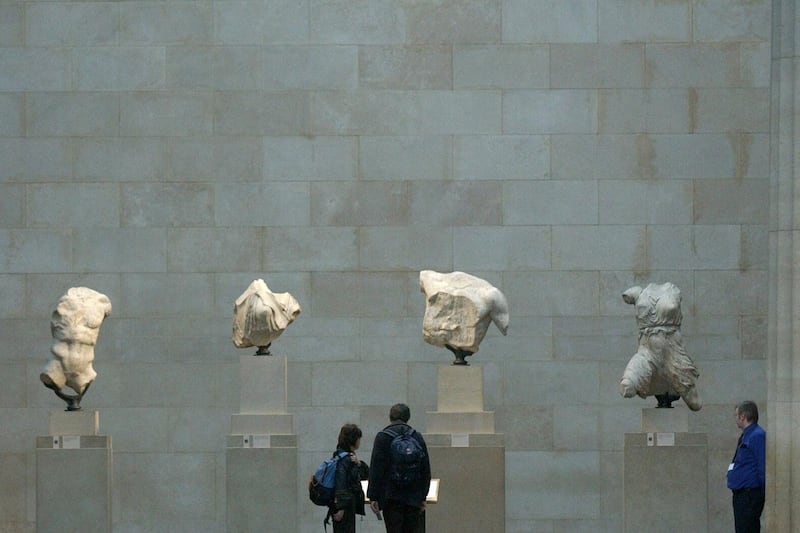People in Ireland, north and south, have long memories and are very clear about the appalling circumstances surrounding the long departed days when our small island was claimed as part of the British Empire.
Many other countries around the world had equally grim experiences of the wider activities of British figures from the same era, and the prolonged controversy surrounding the Parthenon Sculptures - known in London as the Elgin Marbles - has increasingly become a major international issue in recent weeks.
The artifacts are indisputably of enormous historical, cultural and political importance, both in Greece and globally, and date back more than 3000 years, long before the birth of Christ.
They are incredibly beautiful and moving pieces of art, and decorated the walls and grounds of ancient temples, depicting scenes from Greek mythology.
The biggest stretches for 75 metres, depicting a procession for the birthday of the goddess Athena, while others show other heroes and famous creatures, all wonderfully created by the geniuses of a period of massive significance.
There can be no doubt that they belong in Athens, and the Greek Prime Minister Kyriakos Mitsotakis, who was treated with complete disrespect during his English visit last week, was fully entitled to suggest that their loss could be compared to cutting the Mona Lisa in half.
While the British version of events is that they were legitimately transported to London by Thomas Bruce, the 7th Earl of Elgin, in the early 1800s, the rest of the world is in no doubt that in pure and simple terms they were stolen.
Elgin was to put it politely an adventurer, who was somehow appointed as British ambassador to the Ottoman Empire in 1798, a key year in Ireland and elsewhere, and managed through disputed documentation to take control of roughly half of the magnificent collection and ship it to England.
He eventually sold it for a large contemporary sum to the British government, who handed the treasure to the British Museum, where it remains to this day, despite constant protests from the rest of the civilised world, seemingly supported by King Charles who pointedly appeared in public wearing a Greek themed tie last week.
The arrogant response to Mr Mitsotakis from the UK prime minister Rishi Sunak was telling, and demonstrates why Britain’s post Brexit reputation has never been lower, so there will still be a firm and growing belief that that the Parthenon Sculptures must return to their true home.






